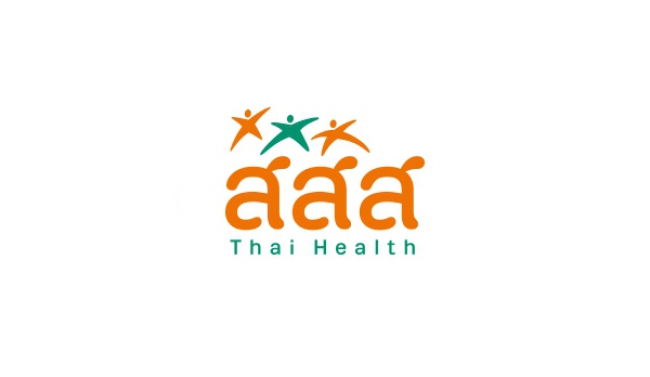
Why shouldn’t ThaiHealth’s budgeting be confined to the conventional budgeting system?
by Dr Prakit Watheesathokkij
Former Chairperson of the Committee for the Establishment of Health Promotion Public Organisation
The issue proposed by the Committee for the Establishment of Health Promotion Public Organisation (CEHPPO), to amend three articles of the Health Promotion Act – the definition of health promotion, the issue conflict of interest of the committee members, and the budgeting of ThaiHealth. I have nothing against the first two amendment proposals for better and clearer depiction for the society.
But I, as one of the first founders of the Health Promotion funds, would like to clarify about the origin of the fund, especially about the special budgeting system – one that is completely beyond the orbit of the conventional budgeting, with serious scrutiny.
The first ideas of the Health Promotion fund was initiated in 1995, after the birth of two tobacco control laws: Tobacco Product Control Act B.E. 1992, and Non-Smoker’s Health Protection Act B.E. 1992. Later in 1993, a problem was found after the failure of an attempt, by the Ministry of Public Health, to solicit a budget to assist the tobacco control work. At the same time, apart from tobacco, problems caused by alcohol drinking and alcohol-related traffic accidents worsened but no such relevant agency exists nor budget to alleviate the problems. The earmarked tax system was then introduced as the main budget of the Health Promotion fund, following Australia’s example, to support the health promotion work.
At the same time, the Ministry of Public Health introduced an idea of health insurance for every citizen. The idea of health promotion was then fused together under a reason that both health insurance and health promotion involve lots of money for medical treatment. As all other countries on the same economic performance as Thailand didn’t feel too eager to go forward with this idea, we proposed that the government invest just a bit more to create the health promotion mechanism so as to reduce the number of future patients of preventable diseases, and so as to reduce the burden of the health insurance budget. The proposed budget for ThaiHealth would come from producers of alcoholic drinks and tobacco products under “Polluter Pays” principle. The Health Promotion Act was then endorsed in 2011, followed by the Health Insurance Act one year later in 2002.
It took Health Promotion Act 7 years in 5 government administrations to come to understanding about the origin of this foundation and its mission of “Build”, “Lead”, and “Repair” by pushing efforts to reduce factors of health risks such as in drinking alcohol, smoking, and accidents, in collaboration with various sectors of the society outside the public health circle. It is an initiative work creating knowledge with the government, private, and community sectors, to communicate and push the policy out in the open in order to control the health risk factors.
The work that took many years to complete is the budgeting system where the tax is directly paid to ThaiHealth from the health-deteriorating businesses.
The Health Promotion Act has been designed to promote the health promotion effort under the conceptual framework set by the Ottawa Charter with objectives to resolve issues of illnesses created by the environment, unlike the Ministry of Public Health’s health promotion work under “Build-Lead-Repair” scheme. Instead, ThaiHealth focuses on the work to reduce health risk factors such as in drinking alcohol, smoking, and accidents, which is by collaborating with various sectors of the society outside the public health circle. It is an initiative work creating knowledge with the government, private, and community sectors, to communicate and push the policy out in the open in order to control the health risk factors.
ThaiHealth’s work directly affect the operations of dangerous or health-deteriorating businesses. It is deemed hard to get the allocated budget under conventional budgeting system due to the influences to the government businesses with conflict of interest. The good example was when the Ministry of Public Health waited for the allocated budget, yet it received only a mere 10 million baht of annual budget from the government for its tobacco control work.
ThaiHealth has been designed to be the foundation of various working systems that are deemed difficult to ask for government funding under the conventional budgeting system. Some people may think that ThaiHealth’s annual budget is quite a large sum of money. However, ThaiHealth’s annual budget accounts to only 1% of the entire country’s health budget earmarked for the National Health Security Office, the Ministry of Public Health, health subsidies for government officials, the Social Security Office, including health budgets allocated for various ministries and departments. If ThaiHealth’s budget needed to be in the conventional budgeting system, we would lack a tool to support the work that can only be funded by the special budgeting system or would need a larger funding to complete the work. For example, the government’s financial system would need more money to complete the media campaigning works due to political influences and practice of commission payment.
“The issue about the budgeting system appropriate for ThaiHealth has long been a dispute. The 2001 Senate meeting saw a fair amount of comments saying they feared the special budgeting system was prone to leakage and corruption. When we tried to explain about our very transparent financial auditing to prevent corruption, the opposing parties insisted on their belief. At last, we asked whether or not the conventional budgeting system is completely free of corruption, whether or not the ThaiHealth-proposed budgeting system is against the government’s financial regulations, and which the senate would choose between sticking to the old regulations or make a new set of rules to save the lives of Thai people.”
The Health Promotion Act was finally passed by the Senate.
I do not guarantee that there will be zero corruption in ThaiHealth as I have not been involved in the administration of this office for 10 years. However, as one of the founders of ThaiHealth, I reiterated firmly to many directors that whenever a corruption is found in ThaiHealth, the people responsible for the wrongdoing must be punished. On the current scale of public scrutiny put on ThaiHealth, it is believed that a speck of corruption is hard to miss.
As for the fear about the weakening of ThaiHealth operations if it was pushed into the conventional budgeting system, this is not imagined deliberately. This fear has been seen in many countries where health promotion foundations have been crippled by so much influence from tobacco businesses that the organisations weakened or even became impotent.
I would like the lawmakers responsible for the Health Promotion Act to take into consideration the World Health Organisation’s propositions to resolve the worldwide problem of chronic diseases caused by inappropriate human behaviours.
Producers of health-deteriorating products are the only business that benefits from the event that ThaiHealth is pushed into the conventional budgeting system.
* * * * *





